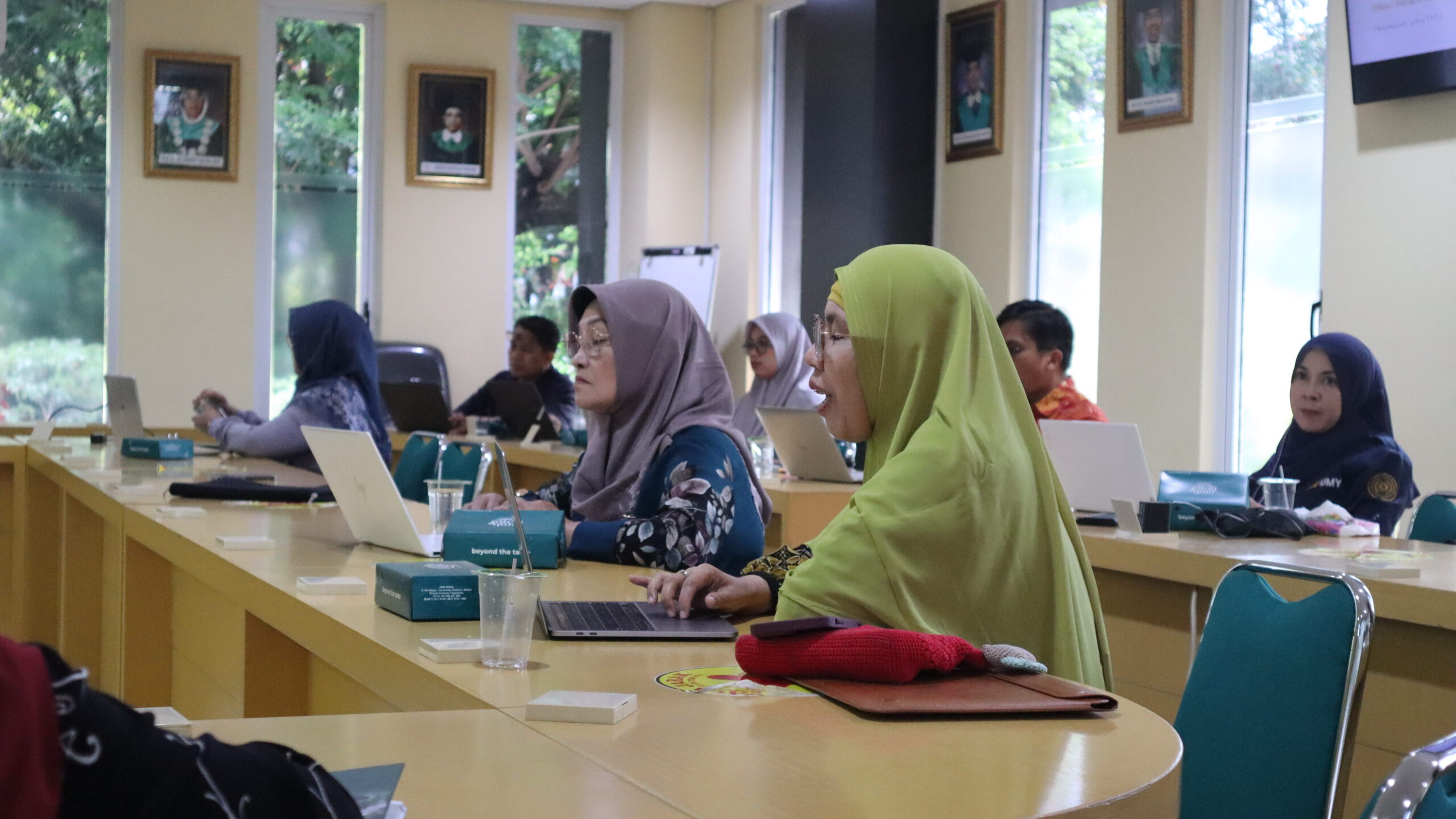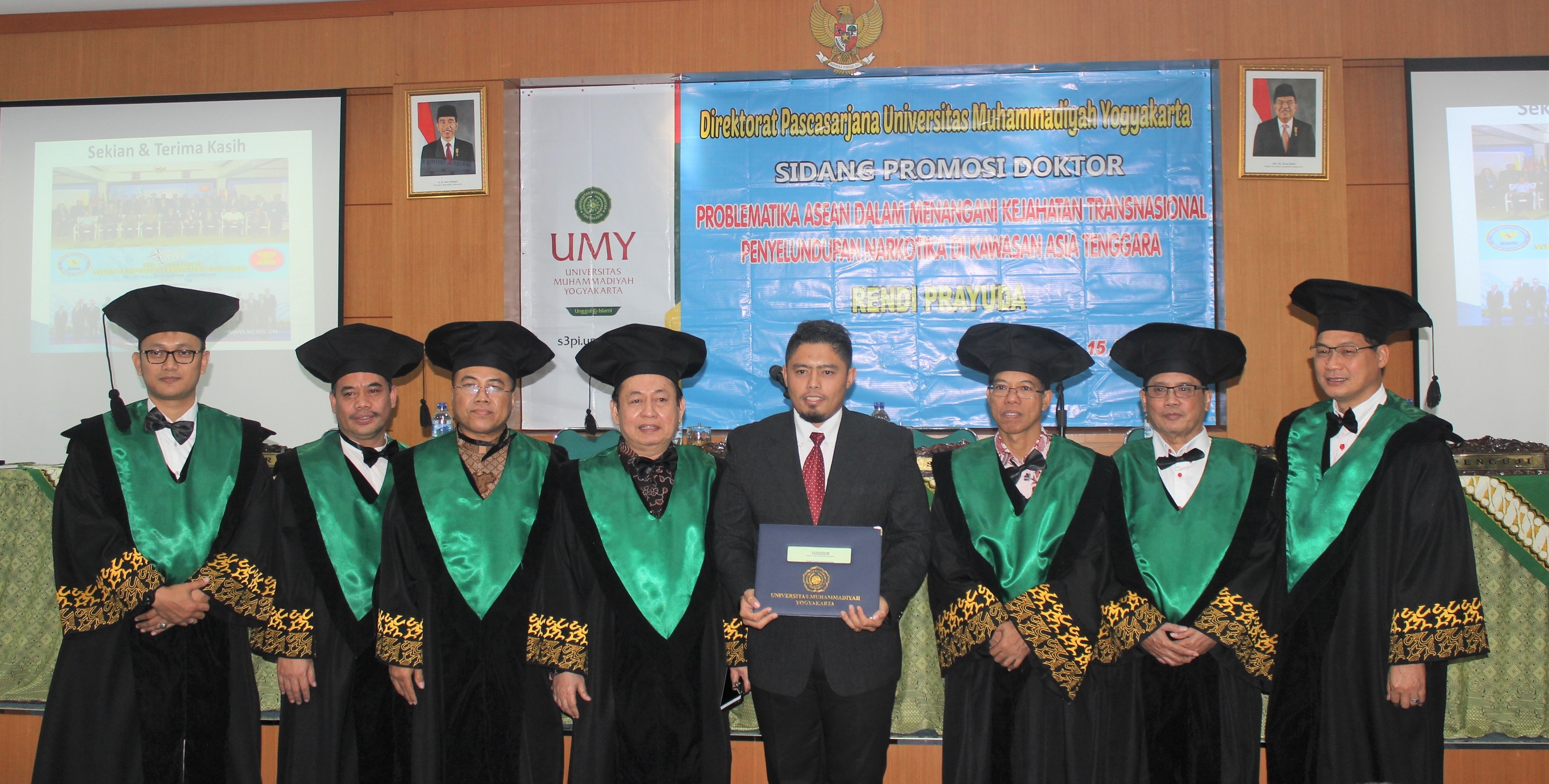

As reported on the official website of the Doctor of Islamic Politics-Political Science program, Rendi Prayuda, in his Doctoral Promotion Session held by the Doctor of Islamic Politics-Political Science program on Monday (15/7) in the Postgraduate Seminar Room of the UMY Integrated Campus, took a dissertation entitled “The Problems of ASEAN in Handling Transnational Crime of Narcotics Trafficking in Southeast Asia.” Rendi explained that ASEAN has not been able to unify its vision and mission institutionally. This is marked by the increasing types and modus operandi of narcotics trafficking in Southeast Asia.
“The changing types of narcotics variants, the changing smuggling routes, and the use of sophisticated technology have made ASEAN countries unable to keep up with the acceleration of the motives of narcotics trafficking criminals,” he explained.
Preventive and repressive efforts have been made internationally by making various agreements and meetings, including the Annual Ministerial Meeting on Transnational Crime (AMMTC), the ASEAN Ministerial Meeting on discussing the threat of narcotics (ASOD) in realizing ASEAN Drug-Free, ASEAN Chiefs of National Police (ASEANAPOL), and ASEAN Narcotics Cooperation Centre (ASEAN-Narco). However, the policies implemented have not been optimal.
“Anticipation is still partial and domestic by each country. The lack of institutionalized values and norms regarding the common threat of narcotics has resulted in this handling still focusing on which country feels the most negative impact of the narcotics threat,” Rendi emphasized.
The contradictions that occur in the spirit of the common vision and mission of ASEAN member countries to eradicate narcotics ideally still face various obstacles, especially in bargaining at the regional level of Southeast Asia and bargaining at the domestic level of each ASEAN member country in terms of implementation and the supremacy of law.
“The implementation of cooperation in handling transnational crime of narcotics trafficking in Southeast Asia has experienced contradictions between the ideals and realities of international organizations. Ideally, all ASEAN member countries agree on common values and norms in the ASEAN security regime, but in reality, the differences in perception of the narcotics threat by each ASEAN member country and the differences in national interests of each country are difficult to unite, resulting in what has been agreed upon and implemented has not been implemented maximally,” he added.